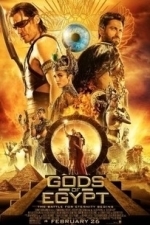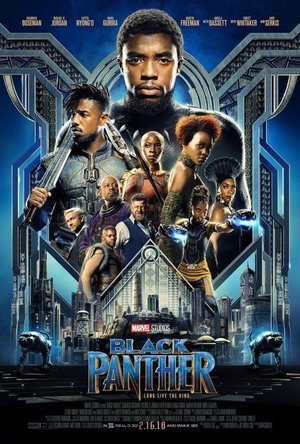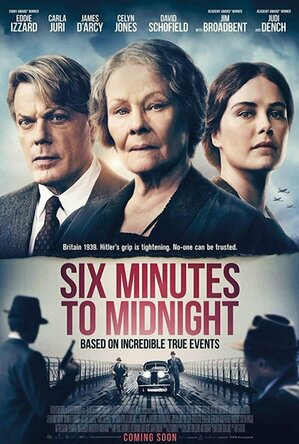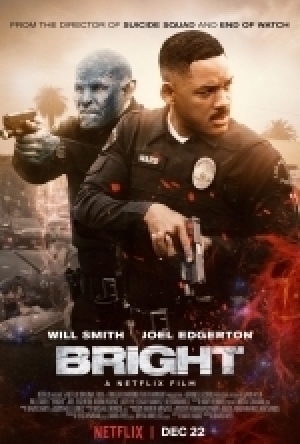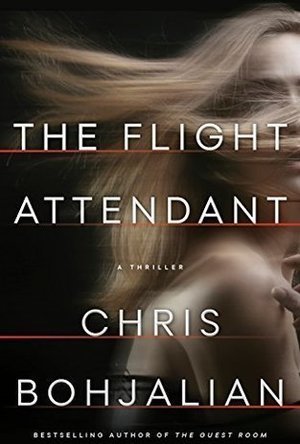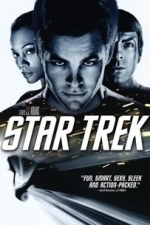Search
Gareth von Kallenbach (980 KP) rated Gods Of Egypt (2016) in Movies
Aug 6, 2019
Gods of Egypt is a visually stunning fantasy film that teeters on the edge of being campy.
The trailers for this film set high expectations, promising a story of the mythical, god-like beings that come from Egyptian lore. But they also raised questions: would the story keep in tune with common mythos, or branch out into a whole new realm?
With Game of Thrones star Nikolaj Coster-Waldau taking the lead, along with 300’s Gerard Butler, the film starts off in a beautiful, ancient Egypt, ruled over by Osiris and his Queen. Horus, Osiris’s son (Coster- Waldau), is ready to assume the crown, but Set (Butler), brother to Osiris, has other plans. He feels scorned for having to live in the desert, and decides it is his time to rule all of Egypt. He murders Osiris, but leaves Horus alive, taking his eyes instead of his life.
Enter a thief, who wants to rescue his beloved from the clutches of Set’s architect (Rufus Sewell). The love of his life somehow talks him into rallying a dejected Horus to fight Set.
All the gods of Egypt are represented in some form or fashion, even if in minor capacity.
The gods have the ability to morph into larger, more powerful beings. They are nigh invincible, but still age, and die. They pray to Ra, god of the sun and grandfather to Horus.
This two-hour movie is filled to the brim with star-power, and superb acting. The special effects are a sight to behold, and they instill a sense of wonderment. The adventure is grand indeed, and will certainly leave you entertained.
That said, the script is sub-par. There are moments where emotional lines could be delivered, but aren’t. This is not from lack of trying on the part of the actors; the writers simply failed to find the proper words. In these moments, there was laughter from the audience at my viewing — during scenes clearly not meant for humor. This is the precarious knife-edge the movie walks between greatness and campy.
I’ve read several articles about how moviegoers are upset at the very Caucasian-looking cast. I shared this sentiment, to a certain degree. It seemed odd that a movie about a specific time and place in history made little effort to be ethnically accurate.
In the end, I let it go. The movie’s lore turned out to be so far from a real-world tie in that it no longer mattered. It was clear this was some sort of alternate universe; one of the major plot holes is a lack of connection to planet Earth.
If you can divorce yourself from some of these elements, you can really enjoy the film for what it is.
My screener companion said he didn’t care for the graphics, because they were obviously fake. I experienced this movie using animated films as my frame of reference, and that made it easier to watch. It is also clearly a High Fantasy film.
In summary: great acting is the glue that holds this film together. Without that talent, it wouldn’t stand up. It is, however, worth seeing if you love fantasy films. You will be entertained, for sure.
3.5 out 5 stars
The trailers for this film set high expectations, promising a story of the mythical, god-like beings that come from Egyptian lore. But they also raised questions: would the story keep in tune with common mythos, or branch out into a whole new realm?
With Game of Thrones star Nikolaj Coster-Waldau taking the lead, along with 300’s Gerard Butler, the film starts off in a beautiful, ancient Egypt, ruled over by Osiris and his Queen. Horus, Osiris’s son (Coster- Waldau), is ready to assume the crown, but Set (Butler), brother to Osiris, has other plans. He feels scorned for having to live in the desert, and decides it is his time to rule all of Egypt. He murders Osiris, but leaves Horus alive, taking his eyes instead of his life.
Enter a thief, who wants to rescue his beloved from the clutches of Set’s architect (Rufus Sewell). The love of his life somehow talks him into rallying a dejected Horus to fight Set.
All the gods of Egypt are represented in some form or fashion, even if in minor capacity.
The gods have the ability to morph into larger, more powerful beings. They are nigh invincible, but still age, and die. They pray to Ra, god of the sun and grandfather to Horus.
This two-hour movie is filled to the brim with star-power, and superb acting. The special effects are a sight to behold, and they instill a sense of wonderment. The adventure is grand indeed, and will certainly leave you entertained.
That said, the script is sub-par. There are moments where emotional lines could be delivered, but aren’t. This is not from lack of trying on the part of the actors; the writers simply failed to find the proper words. In these moments, there was laughter from the audience at my viewing — during scenes clearly not meant for humor. This is the precarious knife-edge the movie walks between greatness and campy.
I’ve read several articles about how moviegoers are upset at the very Caucasian-looking cast. I shared this sentiment, to a certain degree. It seemed odd that a movie about a specific time and place in history made little effort to be ethnically accurate.
In the end, I let it go. The movie’s lore turned out to be so far from a real-world tie in that it no longer mattered. It was clear this was some sort of alternate universe; one of the major plot holes is a lack of connection to planet Earth.
If you can divorce yourself from some of these elements, you can really enjoy the film for what it is.
My screener companion said he didn’t care for the graphics, because they were obviously fake. I experienced this movie using animated films as my frame of reference, and that made it easier to watch. It is also clearly a High Fantasy film.
In summary: great acting is the glue that holds this film together. Without that talent, it wouldn’t stand up. It is, however, worth seeing if you love fantasy films. You will be entertained, for sure.
3.5 out 5 stars
Ryan Hill (152 KP) rated Black Panther (2018) in Movies
May 11, 2019
"Bury me in the ocean with my ancestors who jumped from the ships, 'cause they knew death was better than bondage"
Full of life, joy, sorrow, and hilarity; Ryan Coogler's Black Panther just has a vibrancy you rarely find in the superhero scene, let alone blockbusters. Enriched with a deep, abiding love for African culture and Afrofuturism; the movie just feels purposeful. Important. Meaningful. Context matters here, as Black Panther will become one of very few films populated by African Americans not dealing with slavery or black history to thrive financially. And that cast is phenomenal. Boseman's soft-spoken panther-of-few-words is the rare MCUer to opt for a moment of silence rather than a snarky comment. Michael B Jordan brings an unmistakable swagger to the perpetually weak slate of Marvel villains, conveying a crushingly sad and challenging story that could just as easily be regarded as the true hero of the film. Letitia Wright as the genius tech maestro was a blast, a character who could give Tony Stark a run for his money both technologically and charismatically. And these are just three of Coogler's creations; drawn from a slate of inspired, unique and wonderfully represented roles for black actors...many of whom will deservingly use this as a career springboard of sorts.
I remember years ago I read a book about the cultural significance of various comic book locales, and the Wakanda entry struck me as uniquely sad and inspiring. Wakanda, a place busting with innovation, tradition, and pride...hidden from the world. Sort of an alternate-timeline Africa which wasn't poisoned irreparably by colonialism and all its horrors. There's a sad duality obvious in this Wakanda, that being for it to exist, it must be hidden. Must be quietly nurtured, developed and treasured. It's an apt metaphor in relation to black pride, culture, and history; something constantly being reworked, reshaped and reimagined to put a sordid past (and present) in the rear-view mirror by those who perpetrate it, knowingly or not. This idea, that for something to thrive it must be isolated, is at the heart of Black Panther. You can understand why T'Challa, and generations before him, sacrificed anything to preserve the myth of Wakanda. But you can also understand Killmonger's feeling of betrayal. The profound moral objections inherent in a small community turning it's back on a larger suffering population in the name of self-preservation. There's no heroes and villains when Black Panther is at it's best, just two sides to a terrifying moral question *loaded* with historical weight.
Because Killmonger isn't really a villain. The best illustration of this is the contrasting "dream" sequences, in which T'Challa shares a promise with his father within a transcendentally beautiful African landscape, and Killmonger is confronted by all his pain, suffering and moral rigidity in the vast concrete jungle of Oakland, in the tiny apartment where his father was murdered for trying to make a difference. They both wake up with tears in their eyes, some from pain and some from catharsis. Coogler marks the chasm between T'Challa's and Killmonger's pasts so perfectly, and illustrates exactly why they feel the way they do with such wisdom. Black Panther so clearly empathizes with Killmonger and understands where his pain was born, and the horrors that nurtured it.
And so there's no hero and no villain to this movie. Just two men in nearly identical black panther suits, clashing over how Wakanda ought to venture into a new era. Nobility and passion, conservation and sacrifice, incremental change against a vengeful redistribution of power and oppression. Both men are correct in their aspirations, being "right" here doesn't matter. it's tough for a good man to be king. Killmonger made T'Challa the hero he is, by instilling in him a mission, a perceived duty to turn around, face an oppressed people and finally lend a hand. But more than that, there's something miraculous here. An apology from a good man. A recognition of a sin even when it's perpetrator was, until now, helpless to prevent it. A declaration that not contributing to hate and prejudice doesn't equate to actively working to prevent it. A plea for a humble brand of superheroism, for countless ghosts of the past to be heard and change to erupt in their name. Divides to be bridged, chasms to be crossed and wrongs to be righted.
Black Panther has a complex, meaningful and profoundly challenging thematic framework; offering a fresh dissection of what it means to grapple with the sins of those who came before. Sure, there are some technical issues along the way, the machinations of Marvel storytelling are evident and errors could be found; but if you understand that superhero stories were meant to ask these sorts of questions and push boundaries since their inception; Black Panther is a dream.
I remember years ago I read a book about the cultural significance of various comic book locales, and the Wakanda entry struck me as uniquely sad and inspiring. Wakanda, a place busting with innovation, tradition, and pride...hidden from the world. Sort of an alternate-timeline Africa which wasn't poisoned irreparably by colonialism and all its horrors. There's a sad duality obvious in this Wakanda, that being for it to exist, it must be hidden. Must be quietly nurtured, developed and treasured. It's an apt metaphor in relation to black pride, culture, and history; something constantly being reworked, reshaped and reimagined to put a sordid past (and present) in the rear-view mirror by those who perpetrate it, knowingly or not. This idea, that for something to thrive it must be isolated, is at the heart of Black Panther. You can understand why T'Challa, and generations before him, sacrificed anything to preserve the myth of Wakanda. But you can also understand Killmonger's feeling of betrayal. The profound moral objections inherent in a small community turning it's back on a larger suffering population in the name of self-preservation. There's no heroes and villains when Black Panther is at it's best, just two sides to a terrifying moral question *loaded* with historical weight.
Because Killmonger isn't really a villain. The best illustration of this is the contrasting "dream" sequences, in which T'Challa shares a promise with his father within a transcendentally beautiful African landscape, and Killmonger is confronted by all his pain, suffering and moral rigidity in the vast concrete jungle of Oakland, in the tiny apartment where his father was murdered for trying to make a difference. They both wake up with tears in their eyes, some from pain and some from catharsis. Coogler marks the chasm between T'Challa's and Killmonger's pasts so perfectly, and illustrates exactly why they feel the way they do with such wisdom. Black Panther so clearly empathizes with Killmonger and understands where his pain was born, and the horrors that nurtured it.
And so there's no hero and no villain to this movie. Just two men in nearly identical black panther suits, clashing over how Wakanda ought to venture into a new era. Nobility and passion, conservation and sacrifice, incremental change against a vengeful redistribution of power and oppression. Both men are correct in their aspirations, being "right" here doesn't matter. it's tough for a good man to be king. Killmonger made T'Challa the hero he is, by instilling in him a mission, a perceived duty to turn around, face an oppressed people and finally lend a hand. But more than that, there's something miraculous here. An apology from a good man. A recognition of a sin even when it's perpetrator was, until now, helpless to prevent it. A declaration that not contributing to hate and prejudice doesn't equate to actively working to prevent it. A plea for a humble brand of superheroism, for countless ghosts of the past to be heard and change to erupt in their name. Divides to be bridged, chasms to be crossed and wrongs to be righted.
Black Panther has a complex, meaningful and profoundly challenging thematic framework; offering a fresh dissection of what it means to grapple with the sins of those who came before. Sure, there are some technical issues along the way, the machinations of Marvel storytelling are evident and errors could be found; but if you understand that superhero stories were meant to ask these sorts of questions and push boundaries since their inception; Black Panther is a dream.
Bob Mann (459 KP) rated Six Minutes to Midnight (2021) in Movies
Apr 4, 2021 (Updated Apr 4, 2021)
Historical story (Potential for a great film) (1 more)
Judi Dench
B-grade spy caper antics (1 more)
Some ridiculous plot-points
A "39 Steps-esque" thriller that doesn't match its potential
In "Six Minutes to Midnight", it's the summer of 1939 (so we are in a parallel time-flow here with the events of "The Dig"). A private girl's school - the Augusta Victoria College in Bexhill-on-Sea - is run with loving care by the spinster Miss Rocholl (Judi Dench). But the 'finishing school' is unusual, in that all its teenage students are German. Indeed, they are the offspring of prominent Nazis.
When half-German English teacher Thomas Miller (Eddie Izzard) applies for a suddenly vacant position, he is taken on to share the teaching duties with Rocholl and Ilse (Carla Juri). But in snooping into the activities going on there, he finds mystery and danger.
Positives:
This is a fascinating premise for a movie that will appeal to an older generation, along the lines of "They don't make them like this anymore". It has elements of the 'good guy on the run' that struck parallels with "The 39 Steps" for me.
It's great that the school is all based on historical fact. Miss Rochol did indeed run the school, as a part of a plan to infiltrate British high-society with pro-Nazi sympathies ahead of an invasion. In real-life, one of the pupils was the god-daughter of Heinrich Himmler and one - Bettina von Ribbentrop - was the daughter of the German foreign minister.
After a comic "Family Guy"-style set of production logos to kick off with (for a full one and a half minutes!!), the pre-title sequence is a superb scene-setter. What exactly is going on here? A frantic scrabbling in a bookcase. A pier-end disappearance. The school badge (a genuine reproduction!) with its Union flag and Nazi Swastika insignia. The girls performing a ballet-like ritual on the beach with batons. (This looks to be a cracker, I thought).
Judi Dench. Superb as always.
Chris Seager does the cinematography, and impressively so. Most of Seager's CV has been TV work, so it must be delightful to be given the breadth of a cinema screen to capture landscapes like this.
I like the clever title: "Six Minutes to Midnight". I assumed it was intended solely to reflect the imminence of war. But it actually has another meaning entirely.
Negatives:
For me, was a highly frustrating film. All of the great credibility and atmosphere it builds up in the first 30 minutes, it then squanders by diving off into sub-Hitchcock spy capers.
Izzard becomes a 'man on the run', and doesn't seem credible at that. (I appreciate the irony of this statement given that this is the man who ran 32 marathons in 31 days for charity!) But Izzard is built for distance and not for speed, and some of the police chase scenes in the movie strain credibility to breaking point. Another actor might have been able to pull this off better.
There's a lack of continuity in the film: was it perhaps cut down from a much longer running time? At one point, Miller is a wanted murderer with his face plastered on the front pages. The next, kindly bus driver Charlie (Jim Broadbent) is unaccountably aiding him and Rochol seems to have assumed his innocence in later scenes.
Various spy caper clichés are mined to extreme - including those old classics 'swerve to avoid bullets'; 'gun shot but different gun'; and 'shot guy seems to live forever'. And there are double-agent 'twists' occurring that are utterly predictable.
A very specific continuity irritation for me was in an 'aircraft landing' scene. Markers are separated by nine paces (I went back and counted them!) yet a view from a plane shows them a 'runway-width' apart. This might have escaped scrutiny were it shown just once. But no... we have ground shot; air shot; ground shot; air shot..... repeatedly!
Summary thoughts: This was one of the cinema trailers that most appealed to me over a year ago, in those heady days in the sunlit-uplands of life before Covid-19. It's a movie that showed a great deal of promise, since the history is fascinating. And there is probably a really great TV serial in here: showing the 'alternate history' consequences of these high-society German girls penetrating British society and steering the war in a different direction (screenplay idea (C) RJ Mann!) But the potential is squandered with a non-credible spy caper bolted onto the side.
So with "Six Minutes to Midnight", Downton-director Andy Goddard has made a perfectly watchable 'rainy Sunday afternoon' film, that I enjoyed in part for its 'old-school' quirkiness. But it's frustrating that all the promise couldn't be transitioned into a more satisfying movie.
(For the full graphical review, please check out the One Mann's Movies review here https://bob-the-movie-man.com/2021/04/04/six-minutes-to-midnight-a-39-steps-esque-thriller-but-not-quite-pulling-it-off/. Thanks).
When half-German English teacher Thomas Miller (Eddie Izzard) applies for a suddenly vacant position, he is taken on to share the teaching duties with Rocholl and Ilse (Carla Juri). But in snooping into the activities going on there, he finds mystery and danger.
Positives:
This is a fascinating premise for a movie that will appeal to an older generation, along the lines of "They don't make them like this anymore". It has elements of the 'good guy on the run' that struck parallels with "The 39 Steps" for me.
It's great that the school is all based on historical fact. Miss Rochol did indeed run the school, as a part of a plan to infiltrate British high-society with pro-Nazi sympathies ahead of an invasion. In real-life, one of the pupils was the god-daughter of Heinrich Himmler and one - Bettina von Ribbentrop - was the daughter of the German foreign minister.
After a comic "Family Guy"-style set of production logos to kick off with (for a full one and a half minutes!!), the pre-title sequence is a superb scene-setter. What exactly is going on here? A frantic scrabbling in a bookcase. A pier-end disappearance. The school badge (a genuine reproduction!) with its Union flag and Nazi Swastika insignia. The girls performing a ballet-like ritual on the beach with batons. (This looks to be a cracker, I thought).
Judi Dench. Superb as always.
Chris Seager does the cinematography, and impressively so. Most of Seager's CV has been TV work, so it must be delightful to be given the breadth of a cinema screen to capture landscapes like this.
I like the clever title: "Six Minutes to Midnight". I assumed it was intended solely to reflect the imminence of war. But it actually has another meaning entirely.
Negatives:
For me, was a highly frustrating film. All of the great credibility and atmosphere it builds up in the first 30 minutes, it then squanders by diving off into sub-Hitchcock spy capers.
Izzard becomes a 'man on the run', and doesn't seem credible at that. (I appreciate the irony of this statement given that this is the man who ran 32 marathons in 31 days for charity!) But Izzard is built for distance and not for speed, and some of the police chase scenes in the movie strain credibility to breaking point. Another actor might have been able to pull this off better.
There's a lack of continuity in the film: was it perhaps cut down from a much longer running time? At one point, Miller is a wanted murderer with his face plastered on the front pages. The next, kindly bus driver Charlie (Jim Broadbent) is unaccountably aiding him and Rochol seems to have assumed his innocence in later scenes.
Various spy caper clichés are mined to extreme - including those old classics 'swerve to avoid bullets'; 'gun shot but different gun'; and 'shot guy seems to live forever'. And there are double-agent 'twists' occurring that are utterly predictable.
A very specific continuity irritation for me was in an 'aircraft landing' scene. Markers are separated by nine paces (I went back and counted them!) yet a view from a plane shows them a 'runway-width' apart. This might have escaped scrutiny were it shown just once. But no... we have ground shot; air shot; ground shot; air shot..... repeatedly!
Summary thoughts: This was one of the cinema trailers that most appealed to me over a year ago, in those heady days in the sunlit-uplands of life before Covid-19. It's a movie that showed a great deal of promise, since the history is fascinating. And there is probably a really great TV serial in here: showing the 'alternate history' consequences of these high-society German girls penetrating British society and steering the war in a different direction (screenplay idea (C) RJ Mann!) But the potential is squandered with a non-credible spy caper bolted onto the side.
So with "Six Minutes to Midnight", Downton-director Andy Goddard has made a perfectly watchable 'rainy Sunday afternoon' film, that I enjoyed in part for its 'old-school' quirkiness. But it's frustrating that all the promise couldn't be transitioned into a more satisfying movie.
(For the full graphical review, please check out the One Mann's Movies review here https://bob-the-movie-man.com/2021/04/04/six-minutes-to-midnight-a-39-steps-esque-thriller-but-not-quite-pulling-it-off/. Thanks).

Flight Update Pro – Live Status, Alerts + TripIt
Travel and Business
App
Welcome all FlightTrack Pro users. If you liked FlightTrack Pro, you will love Flight Update Pro. ...

GPS Tracks
Navigation and Health & Fitness
App
"One of the better GPS apps for sporting enthusiasts for the iPhone..." - Bryan Wolfe, AppAdvice.com...

GPS Tracks HD
Navigation and Travel
App
"One of the better GPS apps for sporting enthusiasts for the iPhone..." - Bryan Wolfe, AppAdvice.com...
DiscoStu (6 KP) rated Bright (2017) in Movies
Jan 8, 2018 (Updated Jan 8, 2018)
“A competent buddy cop movie that offers solid pacing and character portrayals at the expense of building up the films (admittedly) interesting universe”.
Contains spoilers, click to show
Netflix’s ‘Bright’, directed by David Ayer (Suicide Squad) and starring Will Smith and Joel Edgerton, brings the big budget box office trappings of a fully fledged cinema release to their home streaming subscription service and arguably the end result is a fun and enjoyable, if slightly flawed, buddy-cop-movie-with-a-twist that sets up a universe you’ll likely want to see more of.
Smith plays Daryl Ward, a weary veteran L.A. cop reluctantly partnered with orc partner Nick, the first and only orc to make the force in this alternate earth story. The film opens with Ward taking a round of buckshot from an orc thug whilst Nick looks on waiting for a burrito from a street vendor. The incident leaves a distrust between Ward and Nick, with Ward unsure whether his partner really has his back after Nick not only failed to step up and prevent the shooting but also failed to apprehend the orc perpetrator during the ensuing foot chase. Ward also finds himself at odds with other members of the force who don’t share the police’s ‘progressive’ attitudes of allowing orcs into the force.
The film briefly touches on a two thousand year old conflict between the nine armies and the Dark Lord who was defeated when various races allied to defeat him. In the established lore the orcs allied with the Dark Lord and have been subjugated ever since. The film attempts to portray the orcs through a social commentary that reflects the black community today and how heavy handed the film tackles the subject will probably depend on the viewer. For me it was handled sensitively enough without being too in your face.
The film sees the two protagonists dispatched to a disturbance that quickly escalates to a situation that goes from bad to worse. Finding themselves on the run with a Bright, the film’s titular white haired magic wielders, and a coveted magic wand Ward and Nick have to navigate hostile L.A. gang land environments whilst pursued by Inferni (the magic version of the Illuminati), the police and human and orc gangsters, all who have their own plans for the wand.
The film is shot well, with plenty of scenery that builds up the shared world of humans, orcs, elves , centaurs and the other races that we don’t get to spend any time with. A montage at the start of the film shows various L.A. scenery graffiti tagged with striking imagery depicting the struggle of orcs in an oppressed landscape. Evidently, orc lives matter. The film also doesn’t struggle for pacing. The two hour runtime services the story well enough, even if some of the world building and character exploration suffers as a result. I would have liked to have spent more time exploring the shared history of the various races and understanding the motivations of the stories’ villains but sadly these elements are undersold in favour of a shorter runtime that hurries the narrative along. To the credit of the writers and the director this world bares revisiting and at the time of writing it sounds like Netflix know this too with a sequel already greenlit.
Bright is a fun jaunt in a world I’d like to get to know better. Smith and Edgerton are strong leads who share a strong chemistry and make you care about their characters. The bad guys don’t fare as well here, especially disappointing given that Noomi Rapace is the lead antagonist but hopefully a sequel will correct some of these missteps. Bright feels like a £20 cinema ticket movie and gives enough to the viewer that you’ll want to discuss it with friends afterwards. As a film bundled with your Netflix subscription it’s hard to be too critical.
Smith plays Daryl Ward, a weary veteran L.A. cop reluctantly partnered with orc partner Nick, the first and only orc to make the force in this alternate earth story. The film opens with Ward taking a round of buckshot from an orc thug whilst Nick looks on waiting for a burrito from a street vendor. The incident leaves a distrust between Ward and Nick, with Ward unsure whether his partner really has his back after Nick not only failed to step up and prevent the shooting but also failed to apprehend the orc perpetrator during the ensuing foot chase. Ward also finds himself at odds with other members of the force who don’t share the police’s ‘progressive’ attitudes of allowing orcs into the force.
The film briefly touches on a two thousand year old conflict between the nine armies and the Dark Lord who was defeated when various races allied to defeat him. In the established lore the orcs allied with the Dark Lord and have been subjugated ever since. The film attempts to portray the orcs through a social commentary that reflects the black community today and how heavy handed the film tackles the subject will probably depend on the viewer. For me it was handled sensitively enough without being too in your face.
The film sees the two protagonists dispatched to a disturbance that quickly escalates to a situation that goes from bad to worse. Finding themselves on the run with a Bright, the film’s titular white haired magic wielders, and a coveted magic wand Ward and Nick have to navigate hostile L.A. gang land environments whilst pursued by Inferni (the magic version of the Illuminati), the police and human and orc gangsters, all who have their own plans for the wand.
The film is shot well, with plenty of scenery that builds up the shared world of humans, orcs, elves , centaurs and the other races that we don’t get to spend any time with. A montage at the start of the film shows various L.A. scenery graffiti tagged with striking imagery depicting the struggle of orcs in an oppressed landscape. Evidently, orc lives matter. The film also doesn’t struggle for pacing. The two hour runtime services the story well enough, even if some of the world building and character exploration suffers as a result. I would have liked to have spent more time exploring the shared history of the various races and understanding the motivations of the stories’ villains but sadly these elements are undersold in favour of a shorter runtime that hurries the narrative along. To the credit of the writers and the director this world bares revisiting and at the time of writing it sounds like Netflix know this too with a sequel already greenlit.
Bright is a fun jaunt in a world I’d like to get to know better. Smith and Edgerton are strong leads who share a strong chemistry and make you care about their characters. The bad guys don’t fare as well here, especially disappointing given that Noomi Rapace is the lead antagonist but hopefully a sequel will correct some of these missteps. Bright feels like a £20 cinema ticket movie and gives enough to the viewer that you’ll want to discuss it with friends afterwards. As a film bundled with your Netflix subscription it’s hard to be too critical.
Kristy H (1252 KP) rated The Flight Attendant in Books
Feb 26, 2018
Compulsively readable (1 more)
Fascinating, befuddling story
Unpredictable book that sucks you in from the start
Cassandra Bowen is a flight attendant with a history of bad decisions--most of them tied to her predilection to heavy drinking. Mostly her drinking leads to sexual encounters with dubious men, topless dancing, and a few bouts of blackouts. But when Cassie's work takes her to Dubai, she spends the night with a gentleman she met on the plane, drinking heavily with him all evening; in the morning she wakes up next to him in bed and finds him dead, covered in blood. Alone and female in Dubai, Cassie sneaks out of the hotel room and returns home on the plane with her fellow flight attendants, setting off a trail of lies that will haunt her. And in the back of her mind, she fears the worst: could she have killed Alex while drunk? And what will happen when the authorities discover her deception?
This novel starts off with a bang, with Cassie waking up next to a dead man. Once Cassie gets back to the States, I found myself fascinated what could possibly happen for the other 80% of the book. (My mistake, a lot can happen.) The entire novel kept me wondering what on earth would come next. This is a crazy, unpredictable book that sucks you in and never lets you go. I was constantly wondering who the various characters were--who really was Alex, for instance? Is there more to Cassie than we are being told? I was honestly confused for a good portion of the book, which doesn't happen often when I read.
It was really fun and befuddling to piece things together in this one. The book was rather stressful, trying to decipher all the various characters and to deal with Cassie's high-risk behavior. As the end nears, I was actually shocked by a couple of twists, which I really appreciated. It's rare that a thriller truly shocks me anymore. I was truly impressed with this one. The ending was a little odd, but as I pondered it more, I think I'm good with it.
As for Cassie, she was a hard character to like, and there's certainly been no shortage of unreliable drunken female narrators in contemporary fiction as of late. Still, you can't help but get caught up in her story. It's compulsively readable. There are also lots of good flight attendant stories; Chris Bohjalian always well researches his books.
Cassie's chapters also alternate with a woman named Elena, which is an effective storytelling device, and only ratchets up the suspense. Her tale is just as befuddling as Cassie's--perhaps even more so--and just added to my desire to turn the pages and find out what on earth was going on and how these people were all connected. Bohjalian really weaved a fascinating story here, and I love how all of his books are so different. Whereas some can be emotional, this one was truly a thriller, and focused so much on the story and mystery. It wasn't exactly what I was expecting, but it was great.
I also found some amusing little personal tidbits in the book: references to Charlottesville (the second in a row in the novels I read--it's my hometown) and Cassie's Kentucky references, including her attendance at the University of Kentucky. We are, in fact, a UK and UVA household--my five-year-old twins are very divided between the two. It's funny how little things stick with you when you read a novel.
Overall, this was a great read. Completely befuddling, but incredibly suspenseful and just sort of fun. Not at all what I expected from Bohjalian, but a fascinating, enjoyable thriller. I was completely lost in Cassie and Elena's bizarre world for a few days--the sign of a great book. 4 stars.
I received a copy of this novel from the publisher and Edelweiss and Netgalley in return for an unbiased review; more at http://justacatandabookatherside.blogspot.com/.
This novel starts off with a bang, with Cassie waking up next to a dead man. Once Cassie gets back to the States, I found myself fascinated what could possibly happen for the other 80% of the book. (My mistake, a lot can happen.) The entire novel kept me wondering what on earth would come next. This is a crazy, unpredictable book that sucks you in and never lets you go. I was constantly wondering who the various characters were--who really was Alex, for instance? Is there more to Cassie than we are being told? I was honestly confused for a good portion of the book, which doesn't happen often when I read.
It was really fun and befuddling to piece things together in this one. The book was rather stressful, trying to decipher all the various characters and to deal with Cassie's high-risk behavior. As the end nears, I was actually shocked by a couple of twists, which I really appreciated. It's rare that a thriller truly shocks me anymore. I was truly impressed with this one. The ending was a little odd, but as I pondered it more, I think I'm good with it.
As for Cassie, she was a hard character to like, and there's certainly been no shortage of unreliable drunken female narrators in contemporary fiction as of late. Still, you can't help but get caught up in her story. It's compulsively readable. There are also lots of good flight attendant stories; Chris Bohjalian always well researches his books.
Cassie's chapters also alternate with a woman named Elena, which is an effective storytelling device, and only ratchets up the suspense. Her tale is just as befuddling as Cassie's--perhaps even more so--and just added to my desire to turn the pages and find out what on earth was going on and how these people were all connected. Bohjalian really weaved a fascinating story here, and I love how all of his books are so different. Whereas some can be emotional, this one was truly a thriller, and focused so much on the story and mystery. It wasn't exactly what I was expecting, but it was great.
I also found some amusing little personal tidbits in the book: references to Charlottesville (the second in a row in the novels I read--it's my hometown) and Cassie's Kentucky references, including her attendance at the University of Kentucky. We are, in fact, a UK and UVA household--my five-year-old twins are very divided between the two. It's funny how little things stick with you when you read a novel.
Overall, this was a great read. Completely befuddling, but incredibly suspenseful and just sort of fun. Not at all what I expected from Bohjalian, but a fascinating, enjoyable thriller. I was completely lost in Cassie and Elena's bizarre world for a few days--the sign of a great book. 4 stars.
I received a copy of this novel from the publisher and Edelweiss and Netgalley in return for an unbiased review; more at http://justacatandabookatherside.blogspot.com/.
Gareth von Kallenbach (980 KP) rated Star Trek (2009) in Movies
Aug 14, 2019
With declining attendance at conventions and a dwindling audience for recent films and the last Star Trek series, Enterprise, Paramount was desperate to find a way to breathe new life into their franchise. So they pinned their hopes on director J.J. Abrams. Even with a string of hit movies and television series under his belt, some believed that Abrams was facing an uphill battle in trying to resuscitate Star Trek, with its legions of rabid fans obsessively protective of the series’ 40-plus years of established history.
While many fans were thrilled with the choice of Abrams, some of the casting choices of its beloved characters were met with doubt and skepticism. Thankfully, the man behind such motion picture hits as “Cloverfield”, “Mission Impossible 3”, and television series LOST, Alias and Fringe, was more than up to the task and has crafted a visually spectacular action film that combines the best of Trek with groundbreaking effects and creative vitality.
Using a script by Robert Orci and Alex Kurtzman, the new film focuses on the early days of the crew, and how young James. T. Kirk (Chris Pine) went from being a joy-riding, bar-fighting hothead into captain of the Enterprise. Kirk is challenged by Captain Christopher Pike (Bruce Greenwood) to live up to the legacy of his father and make something of his life in Starfleet. Despite his cocky attitude, the young man is able to thrive at the academy despite his arrogant behavior and his womanizing ways.
At the same time, a threat has arisen in the form of a Romulan named Nero (Eric Bana), who seeks to cause massive death and destruction in his quest for vengeance. With danger looming, Kirk and his fellow classmates are pressed into action, and thanks to some skillful work from his friend Leonard Mc Coy (Karl Urban), Kirk finds himself onboard the new Federation flagship Enterprise.
En route to their destination, Kirk realizes they are heading into a trap and warns Captain Pike of his concerns. Naturally this does not sit well with some of the seasoned officers, especially Spock (Zachary Quinto), who sees the emotional Kirk as an unwanted reminder of his human half, which he tries to hide at all costs.
Eventually the Enterprise is confronted by Nero and in an impressive sequence of events Kirk and Sulu (John Cho), lead an orbital skydive mission to thwart Nero’s plot. Spock finds himself commanding the ship and he and Kirk, two polar opposites, disagree over a course of action. Citing insurbordination and dereliction, Spock expels Kirk from the ship onto a frigid and dangerous planet. What follows is an amazing and thrilling adventure that culminates in an impressive finale, that proves that Trek has got plenty of life left in it.
While I loved the film, I found that I had to detach myself from my love of classic Trek to fully enjoy it. The film covers changes in established cannon by setting events in an alternate timeline. Despite the different eras of the previous series and films, there was always a certain continuity to the ships, planets, and characters that always seemed to fit, which I found myself missing in this new incarnation.
In Abram’s version, the Enterprise engine room is awash in catwalks, pipes, and valves that seemed out of place on a ship set in the 23rd century. I also found myself asking why such strategically valuable planets such as Earth and Vulcan would not have massive defense fleets in orbit, and would task only a handful of ships for their defense. There was a suggestion, that the ships of the fleet were amassed elsewhere on another matter of importance, but that does not explain what would leave the planets relatively unguarded. Defense codes aside, I found it hard to believe that automated defenses would be all that was left behind, and that reinforcements were not available.
I also had an issue with what Nero was supposedly doing for 25 years and how he kept such a low profile while he plotted his revenge. The final issue I had was with product placement as I found it hard to believe that Nokia and its familiar ringtone and Budweiser would be around as Trek lore is based on the planet narrowly surviving a nuclear war in the past that nearly destroyed everything. While this may seem like minor criticism, from the perspective of a long time Star Trek fan, it contradicts much of what had been established.
Thankfully, Abrams and crew take the series in a new direction without totally losing sight of where it came from. There are many nods to the series and Abrams clearly respects the original material enough to let fans know that their beloved Trek is still there in the original timeline, with its history intact. By cleverly establishing a different timeline, Abrams has creative freedom to go in any direction he desires.
The cast is strong, with Chris Pine’s Kirk as cocky and entertaining as his predecessor. I loved Anton Yelchin as Chekov and his struggles with the English language, Simon Pegg’s quick quips as Scotty, and the sassy attitude Zoe Saldana’s injects into her Uhura. The amazing visuals and designs of the film are breathtaking and it was clear that the Industrial Light & Magic (ILM) crew pushed themselves to bring everything they had to the film. In the end, Star Trek is a remarkable film that, despite some issues, has a solid new lease on life. Abrams boldly, and triumphantly, goes where fans, old and new, will gladly follow.
While many fans were thrilled with the choice of Abrams, some of the casting choices of its beloved characters were met with doubt and skepticism. Thankfully, the man behind such motion picture hits as “Cloverfield”, “Mission Impossible 3”, and television series LOST, Alias and Fringe, was more than up to the task and has crafted a visually spectacular action film that combines the best of Trek with groundbreaking effects and creative vitality.
Using a script by Robert Orci and Alex Kurtzman, the new film focuses on the early days of the crew, and how young James. T. Kirk (Chris Pine) went from being a joy-riding, bar-fighting hothead into captain of the Enterprise. Kirk is challenged by Captain Christopher Pike (Bruce Greenwood) to live up to the legacy of his father and make something of his life in Starfleet. Despite his cocky attitude, the young man is able to thrive at the academy despite his arrogant behavior and his womanizing ways.
At the same time, a threat has arisen in the form of a Romulan named Nero (Eric Bana), who seeks to cause massive death and destruction in his quest for vengeance. With danger looming, Kirk and his fellow classmates are pressed into action, and thanks to some skillful work from his friend Leonard Mc Coy (Karl Urban), Kirk finds himself onboard the new Federation flagship Enterprise.
En route to their destination, Kirk realizes they are heading into a trap and warns Captain Pike of his concerns. Naturally this does not sit well with some of the seasoned officers, especially Spock (Zachary Quinto), who sees the emotional Kirk as an unwanted reminder of his human half, which he tries to hide at all costs.
Eventually the Enterprise is confronted by Nero and in an impressive sequence of events Kirk and Sulu (John Cho), lead an orbital skydive mission to thwart Nero’s plot. Spock finds himself commanding the ship and he and Kirk, two polar opposites, disagree over a course of action. Citing insurbordination and dereliction, Spock expels Kirk from the ship onto a frigid and dangerous planet. What follows is an amazing and thrilling adventure that culminates in an impressive finale, that proves that Trek has got plenty of life left in it.
While I loved the film, I found that I had to detach myself from my love of classic Trek to fully enjoy it. The film covers changes in established cannon by setting events in an alternate timeline. Despite the different eras of the previous series and films, there was always a certain continuity to the ships, planets, and characters that always seemed to fit, which I found myself missing in this new incarnation.
In Abram’s version, the Enterprise engine room is awash in catwalks, pipes, and valves that seemed out of place on a ship set in the 23rd century. I also found myself asking why such strategically valuable planets such as Earth and Vulcan would not have massive defense fleets in orbit, and would task only a handful of ships for their defense. There was a suggestion, that the ships of the fleet were amassed elsewhere on another matter of importance, but that does not explain what would leave the planets relatively unguarded. Defense codes aside, I found it hard to believe that automated defenses would be all that was left behind, and that reinforcements were not available.
I also had an issue with what Nero was supposedly doing for 25 years and how he kept such a low profile while he plotted his revenge. The final issue I had was with product placement as I found it hard to believe that Nokia and its familiar ringtone and Budweiser would be around as Trek lore is based on the planet narrowly surviving a nuclear war in the past that nearly destroyed everything. While this may seem like minor criticism, from the perspective of a long time Star Trek fan, it contradicts much of what had been established.
Thankfully, Abrams and crew take the series in a new direction without totally losing sight of where it came from. There are many nods to the series and Abrams clearly respects the original material enough to let fans know that their beloved Trek is still there in the original timeline, with its history intact. By cleverly establishing a different timeline, Abrams has creative freedom to go in any direction he desires.
The cast is strong, with Chris Pine’s Kirk as cocky and entertaining as his predecessor. I loved Anton Yelchin as Chekov and his struggles with the English language, Simon Pegg’s quick quips as Scotty, and the sassy attitude Zoe Saldana’s injects into her Uhura. The amazing visuals and designs of the film are breathtaking and it was clear that the Industrial Light & Magic (ILM) crew pushed themselves to bring everything they had to the film. In the end, Star Trek is a remarkable film that, despite some issues, has a solid new lease on life. Abrams boldly, and triumphantly, goes where fans, old and new, will gladly follow.
